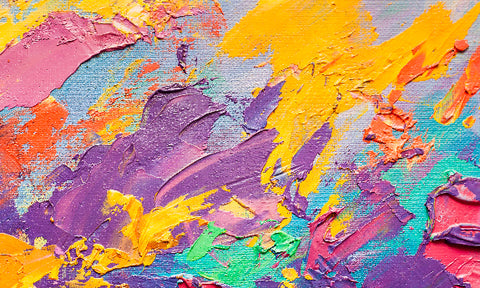There are many women who originally had symptoms of PMS, but are worried that the symptoms have become worse in their 30s. It's not just your imagination, it's possible that your PMS symptoms are actually getting worse. This time, we will explain the causes of PMS worsening in your 30s, changes in symptoms with age, and how to improve PMS, so if you are in your 30s and are suffering from PMS symptoms, please refer to it.
Find out in this article
- What is PMS
- Why PMS gets worse in your 30s
- Changes in PMS symptoms with age
- How to improve PMS
[I can understand you in just 3 minutes]
Click here for a free medical interview supervised by a doctor that can be done on LINE
What is PMS (Premenstrual Syndrome)?

PMS (Premenstrual Syndrome) is Japanese for premenstrual syndrome
, and refers to physical and mental symptoms that appear 3 to 10 days before menstruation begins. There are individual differences in PMS symptoms, and it is said that there are more than 200 types. Here are the main symptoms of PMS. Headache, back pain, nausea, dizziness, malaise, lower abdominal pain, tension, irritation, depression, emotional instability, etc. The cause of PMS is not clear, but fluctuations in female hormones are thought to be one of the causes. A sudden decrease in female hormones causes abnormalities in hormones and neurotransmitters in the brain, resulting in the development of various symptoms.
Can PMS get worse in your 30s?

People in their 30s are the most likely to experience PMS symptoms. In their 20s, physical symptoms tend to be severe, but in their
30s, mental symptoms become severe in addition to physical symptoms, so "PMS got worse in my 30s." Many people feel that In your 30s, the secretion of female hormones (estrogen) reaches its peak, and your body becomes more sexually mature. It is also related to the fact that more women experience childbirth in their 30s. Read more about the relationship between PMS and childbirth. In addition, it is thought that one of the causes of worsening PMS in the 30s is that stress tends to accumulate as work and personal life become busy in the 30s.
Changes in symptoms due to age

Menstruation generally begins around the age of 12-13, and menopause occurs around the age of 50. At the beginning of menstruation, female hormones are not stable, so menstruation tends to be irregular, but at the age of 18, female hormones are stable and enter a period called "sexual maturity." The sexual maturity period is the period suitable for pregnancy and childbirth, and at the same time, PMS begins and the number of women suffering from various symptoms increases.
PMS symptoms become more severe with age, and peak in the late 20s and 30s. As I touched on earlier, PMS symptoms tend to be more physical in the 20s, and in the 30s, mental symptoms tend to become more severe in addition to physical symptoms. Depending on the person, the symptoms of PMS are severe even in their 40s, and it is not uncommon for them to transition to menopause.
Do the symptoms change depending on whether or not you have given birth?

Childbirth can change PMS symptoms. This is due to the large fluctuations in the secretion of female hormones from pregnancy to postpartum. After conception, the amount of female hormone secretion increases gradually until childbirth, and the amount of secretion decreases suddenly after childbirth. After that, the hormone balance gradually returns to normal and menstruation resumes, but the timing of the resumption of menstruation and ovulation varies from person to person, and the hormone balance is unstable.
Many women find their PMS worse after giving birth, as hormonal imbalance can make PMS symptoms more severe. In addition, after childbirth, mental symptoms such as irritability and anger tend to occur due to lack of mental leeway in childcare. Therefore, many women feel that their PMS symptoms have changed before and after childbirth, i.e., they have become mentally ill.
How to improve PMS

There are several ways to improve PMS.
- improvement of lifestyle
- taking low-dose pills
- herbal medicine, etc.
PMS symptoms can be relieved by changing lifestyle habits. For example, get a good night's sleep, exercise moderately, lead a regular life, and refrain from drinking and smoking. Low-dose pills work by suppressing the secretion of female hormones (luteinizing hormone), which alleviates the symptoms of PMS. In addition to PMS, the low-dose pill can also be expected to be effective for dysmenorrhea, irregular menstruation, and contraception. Tokishakuyakusan, Keishibukuryogan, and Kamishoyosan are mainly used to improve PMS. It is important to choose a herbal medicine that matches your symptoms, so if you want to use herbal medicine, consult your doctor or pharmacist.
▼ You can consult Kampo on LINE
Click here for a free consultation supervised by a doctor
Also read the following articles
I will explain PMS and Chinese medicine
summary
Many women suffer from PMS, especially in their 30s, when they experience mental symptoms in addition to physical symptoms . Childbirth also affects PMS symptoms. PMS symptoms vary from person to person, and peaks vary from person to person. PMS symptoms can be improved with lifestyle changes, low-dose pills, and herbal medicine. If your PMS symptoms become severe and you can't stand it, don't overdo it and consult a gynecologist.
[I can understand you in just 3 minutes]
Click here for a free medical interview supervised by a doctor that can be done on LINE













